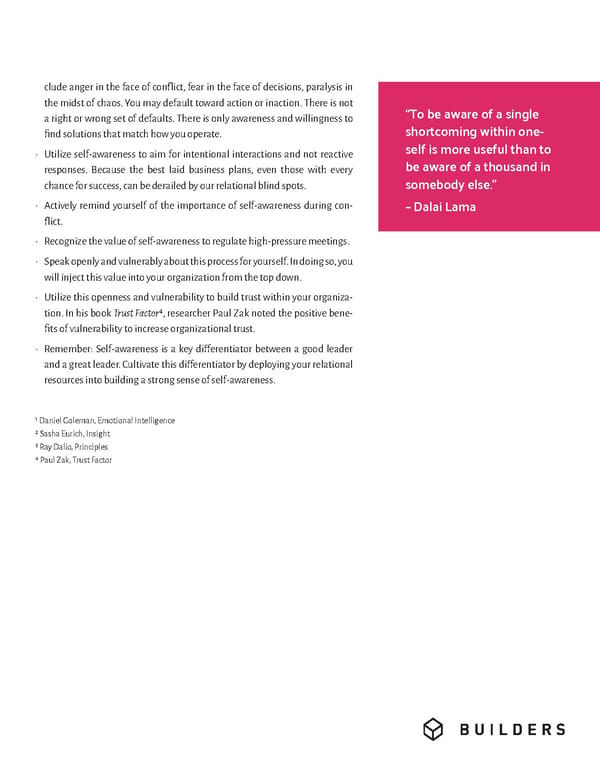clude anger in the face of conflict, fear in the face of decisions, paralysis in the midst of chaos. You may default toward action or inaction. There is not “To be aware of a single a right or wrong set of defaults. There is only awareness and willingness to shortcoming within one- find solutions that match how you operate. • Utilize self-awareness to aim for intentional interactions and not reactive self is more useful than to responses. Because the best laid business plans, even those with every be aware of a thousand in chance for success, can be derailed by our relational blind spots. somebody else.” • Actively remind yourself of the importance of self-awareness during con- – Dalai Lama flict. • Recognize the value of self-awareness to regulate high-pressure meetings. • Speak openly and vulnerably about this process for yourself. In doing so, you will inject this value into your organization from the top down. • Utilize this openness and vulnerability to build trust within your organiza- tion. In his book Trust Factor4, researcher Paul Zak noted the positive bene- fits of vulnerability to increase organizational trust. • Remember: Self-awareness is a key differentiator between a good leader and a great leader. Cultivate this differentiator by deploying your relational resources into building a strong sense of self-awareness. 1 Daniel Goleman, Emotional Intelligence 2 Sasha Eurich, Insight 3 Ray Dalio, Principles 4 Paul Zak, Trust Factorlai Lama
 The Power of Self-Awareness Page 4 Page 6
The Power of Self-Awareness Page 4 Page 6